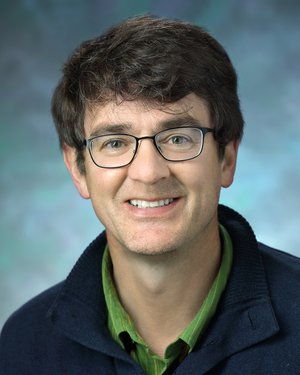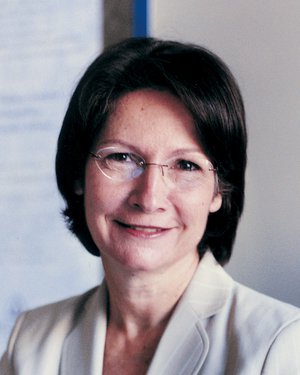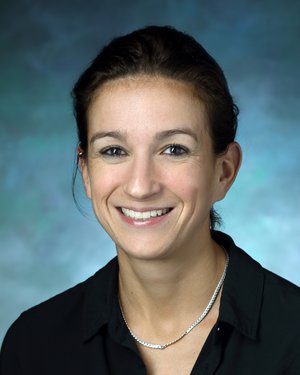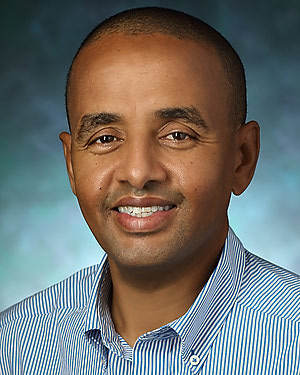Research Lab Results
-
Nicola Heller Lab
Research in the Nicola Heller Lab focuses on the immunobiology of macrophages. Our team explores how these cells impact diseases with an inflammatory element, such as cancer, cardiovascular disease and obesity. Using a variety of techniques, including molecular and cellular biology, biochemistry, mouse models and more, we study the role of IL-4/IL-13 signaling in asthma and allergic disease, as well as the role of alternatively activated macrophages (AAM) in the pathogenesis of allergic inflammation. Currently, we are researching the links between asthma and obesity, with a focus on the roles of gender and race. -
Marie-France Penet Lab
The Penet lab is within the Division of Cancer Imaging Research in the Department of Radiology and Radiological Science. The lab research focuses on using multimodal imaging techniques to better understand the microenvironment and improve cancer early detection, especially in ovarian cancer. By combining MRI, MRS and optical imaging, we are studying the tumor microenvironment to understand the role of hypoxia, tumor vascularization, macromolecular transport and tumor metabolism in tumor progression, metastasis and ascites formation in orthotopic models of cancer. We also are studying the role of tumor-associated macrophages in tumor progression. -
Brendan Cormack Laboratory
The Brendan Cormack Laboratory studies fungal pathogenesis, particularly the host-pathogen interaction for the yeast pathogen Candida glabrata. We are trying to identify virulence genes (genes that evolved in response to the host environment) by screening transposon mutants of C. glabrata for mutants that are specifically altered in adherence to epithelial cells, in survival in the presence of macrophages and PMNs. We also screen mutants directly in mice for those unable to colonize or persist in the normal target organs (liver, kidney and spleen). We also focus research on a family of genes--the EPA genes--that allow the organism to bind to host cells. Our research shows that a subset of them are able to mediate adherence to host epithelial cells. We are trying to understand the contribution of this family to virulence in C. glabrata by figuring out what the ligand specificity is of different family members, how genes are normally regulated during infection, and what mechanisms normally act to keep the genes transcriptionally silent and how that silence is regulated.
-
Mohamed Farah Lab
The Mohamed Farah Lab studies axonal regeneration in the peripheral nervous system. We've found that genetic deletion and pharmacological inhibition of beta-amyloid cleaving enzyme (BACE1) markedly accelerate axonal regeneration in the injured peripheral nerves of mice. We postulate that accelerated nerve regeneration is due to blockade of BACE1 cleavage of two different BACE1 substrates. The two candidate substrates are the amyloid precursor protein (APP) in axons and tumor necrosis factor receptor 1 (TNFR1) on macrophages, which infiltrate injured nerves and clear the inhibitory myelin debris. In the coming years, we will systematically explore genetic manipulations of these two substrates in regard to accelerated axonal regeneration and rapid myelin debris removal seen in BACE1 KO mice. We also study axonal sprouting and regeneration in motor neuron disease models. -
Retrovirus Laboratory
Research in the Retrovirus Laboratory focuses on the molecular virology and pathogenesis of lentivirus infections. In particular, we study the simian immunodeficiency virus (SIV) to determine the molecular basis for the development of HIV CNS, pulmonary and cardiac disease. Research projects include studies of viral molecular genetics and host cell genes and proteins involved in the pathogenesis of disease. We are also interested in studies of lentivirus replication in macrophages and astrocytes and their role in the development of disease. These studies have led us to identify the viral genes that are important in neurovirulence of SIV and the development of CNS disease including NEF and the TM portion of ENV. The mechanisms of the action of these proteins in the CNS are complex and are under investigation. We have also developed a rapid, consistent SIV/macaque model in which we can test the ability of various antiviral and neuroprotective agents to reduce the severity of CNS and pulmonary disease.



